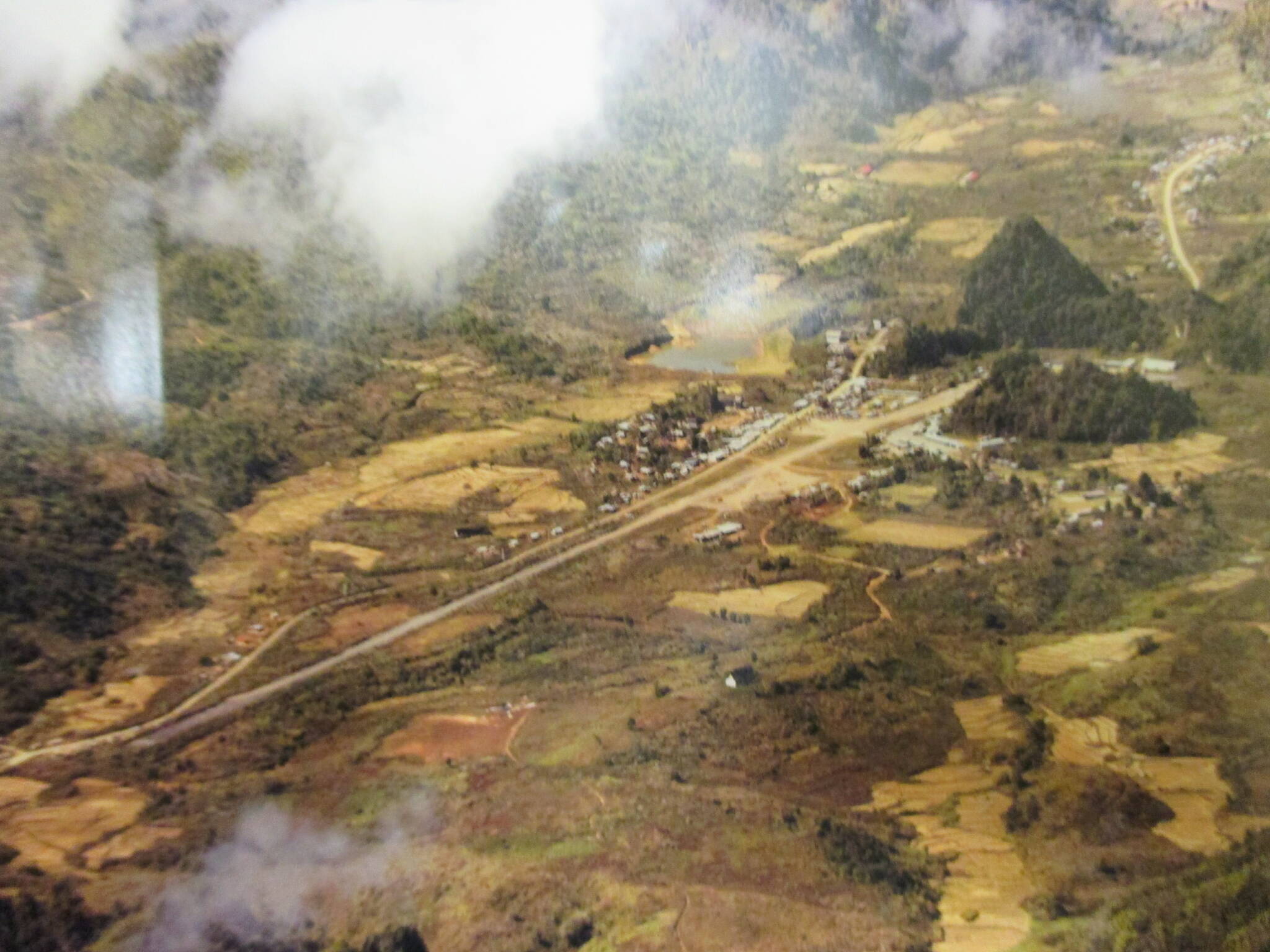Some goods are easy to transport in a helicopter, according to retired Marine Corps Captain Bill Collier.
Rice, dehydrated milk, canned lobster and the like are straightforward enough to get from one place to another via chopper. But a live water buffalo? That requires pilots and crew to get creative.
How to get the 1,000-pound creature in the air is just one of many lessons Collier learned as a pilot for a secret airline operated by the CIA in the 1960s and ’70s.
Collier began his aviation career as a helicopter pilot for the Marine Corps, he said at a presentation sponsored by the Pacific Northwest Naval Air Museum on June 27.
After graduating from flight school in 1965, he served for three years, including a period in Vietnam. There, he conducted medical evacuations of hundreds of wounded marines and earned a Purple Heart.
His time in Vietnam was taxing, Collier said, and when he finished his contract, he did not want to stay in the Marine Corps. He was searching for commercial airline jobs, which were difficult to come by at that time, when the CIA sent him an application for Air America, its airline supporting covert operations in Southeast Asia.
Collier decided to fill out the application as a backup plan and was hired. It was the beginning of what he called “the grandest adventure any helicopter pilot could ever have.”
As a helicopter pilot for Air America, Collier lived in Thailand and commuted weekly to a secret CIA base in Laos. The base was located in the valley of Long Tieng, where the Laotian people had outposts to hold off North Vietnamese troops advancing from the north.
Air America supported the Laotian operations by delivering food and other supplies via helicopter. The Laotian people even required live water buffalo for religious ceremonies, which helicopters transported by centering the buffalo over a cargo net and tranquilizing it.
Collier recalled seeing the massive beasts dangling in their nets from the helicopters as they flew. Sometimes the buffalo would wake up mid-flight, he said, and could be heard bellowing in confusion.
When working, he would often fly back and forth with cargo deliveries for as long as 12 hours a day, he said. But every month, he also had time for rest and recuperation, which he often spent traveling. Collier visited locations such as Hong Kong, Bangkok, Beirut and Penang, and even made the trek to California for his 10-year high school class reunion, where he won a prize for traveling the longest distance for the event.
But it wasn’t all exciting trips and flying cows. Collier said that every once in a while, he would get a special assignment to insert or extract a small squad of spies into North Vietnamese territory. Most of the time these operations went smoothly, but he recalled one occasion in which a helicopter took enemy fire while attempting to land.
The pilot managed to land the helicopter after engine failure, but one crew member was killed by a helicopter blade while attempting to evacuate the downed aircraft. A Laotian man was injured by a blade, as well. Collier helped transport the injured man and the body of the fallen crew member into his own helicopter and brought them back to base.
Air America pilots would assist in other rescue operations, as well. Collier said one time he picked up an Air Force pilot who was shot down while flying over the Ho Chi Minh trail, looking for enemy fuel or supply dumps to destroy. When Collier delivered the pilot back to base, he was whisked away in an ambulance.
Collier joked that he was disappointed the Air Force pilot was taken away so quickly, because it was customary for rescued personnel to buy a drink for the pilot who picked them up.
He wouldn’t get that drink until more than three decades later. Collier shared that 34 years after the fact, he was attending the funeral of a CIA officer when he met another Air Force pilot who put him in contact with the man he rescued in Laos all those years before.
Then a pilot with Continental Airlines, the former Air Force pilot Collier had rescued flew to San Francisco and brought Collier his bottle of booze.
Collier would leave Air America shortly before the U.S. signed the Paris Peace Accords, which ended the Vietnam War.
He went on to write about his experience in his memoir, “Air America: A CIA Super Pilot Spills the Beans.”


